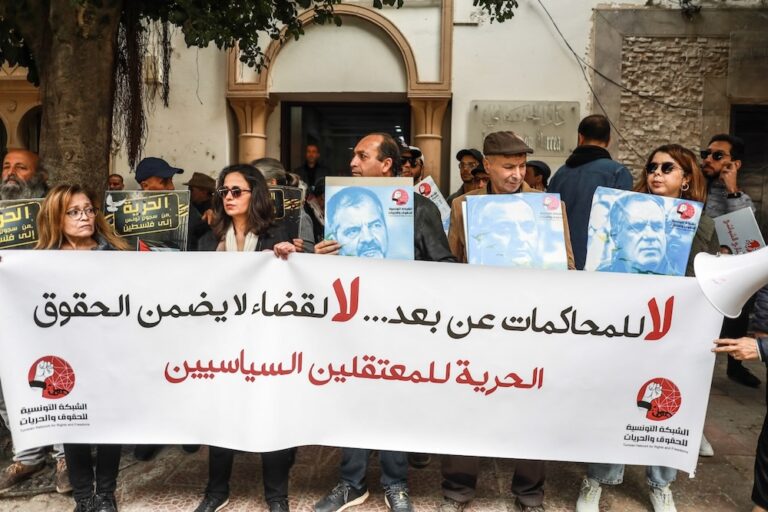"Censorship has not totally disappeared and could return in force at any moment," said RSF.
(RSF/IFEX) – 10 February 2011 – Reporters Without Borders visited Tunisia from 2 to 4 February to evaluate the situation of the media two weeks after the fall of President Zine el-Abidine Ben Ali, to analyze their needs and to determine what contribution it could make during this transition period.
The organization’s representatives met many journalists, including those opposed to the former regime, those linked to it, and members of the Union of Tunisian Journalists. They also met with the new secretary of state for youth and sport (who is a blogger), and distributed technical equipment.
“Tunisia is in full ferment,” Reporters Without Borders secretary-general Jean-François Julliard said. “Its journalists are living a historic period in which their freedom is being respected for the first time. They must be encouraged and supported. This young revolution’s gains must above all be consolidated. Censorship has not totally disappeared and could return in force at any moment. To guard against this, a legal and institutional framework with lasting guarantees for free expression must be put in place quickly. This requires legislative reforms and the creation of independent media regulatory bodies.
“After 23 years of censorship, press freedom is a reality in Tunisia,” Julliard added. “This was unexpected. We are thrilled for all the free speech activists. During all these years, a handful of people fought to defend their freedom. At last their efforts and their tenacity are being rewarded. We are thinking of them and all those who are now going to be able to practice journalism in more favourable conditions. Reporters Without Borders will continue to have a major presence in Tunisia and to play its role as a defender of freedoms.”
For 23 years, the Ben Ali regime kept a tight grip on news and information in the traditional media and then online. After a month of street protests, the people’s revolution succeeded in driving the president into exile on 14 January.
The provisional government of national unity that took over abolished the information ministry on 17 January. Slim Amamou, a blogger who had been released four days earlier, became secretary of state for youth and sport. The new government immediately proclaimed complete freedom of information and expression as a fundamental principle.
( . . . )


